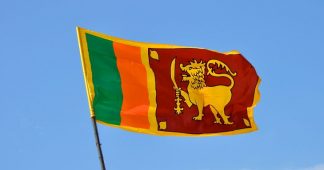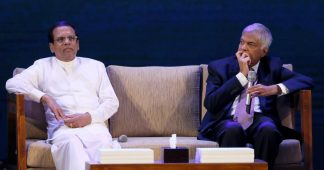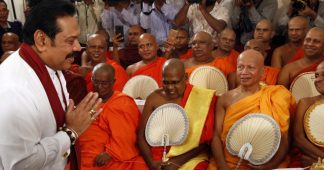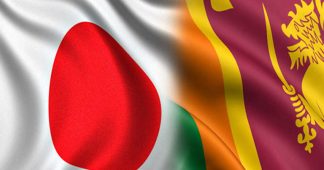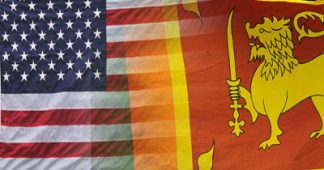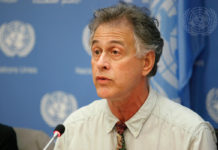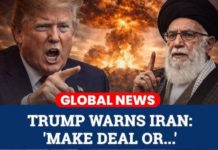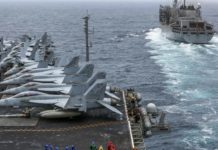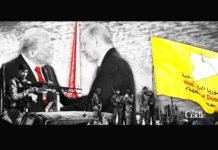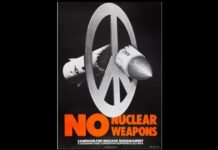Jan.9, 2019
By LasandaKurukulasuriya
Sri Lanka’s seven-week political impasse towards the end of last year, caused by a clash between the executive and legislature, was resolved through a ruling by the country’s judiciary. While a semblance of order has been restored, it will probably require a nation-wide polltoreveal the actual balance of forces between those supporting the UNP (United National Party),led by reinstated Prime Minister Ranil Wickremesinghe, and the SLFP (Sri Lanka Freedom Party) led by President Maithripala Sirisena, whose early dissolution of parliament was ruled unconstitutional.When elections are eventually held, the real force behind any coalition formed by Sirisenawill be former president Mahinda Rajapaksa, with whom the president teamed upwhen his co-habitation in a unity government with the UNP fell apart. Rajapaksa, whom Sirisena had appointed as prime minister in place of Wickremesinghe, stepped down last month and is now Leader of the Opposition. A new political party of which he is de facto leader, won a resounding victory at local government polls last February.
While this political imbroglio unraveled, for the most part life went on as usual in the rest of the country.“Street protests and press conferences likewise remain limited to news rooms and television with rest of city traffic going around or staying clogged as usual,”asSwaran Singh, professor at New Delhi’s Jawaharlal Nehru University observed.
Much excitement was evident however, among Colombo-based Western diplomats,who were the subject of some media interest when they satas keen observersin the gallery of parliament and in the court house, tracking Sri Lankan events at micro-level as they unfolded. These envoys breathed a collective sigh of relief with the exit of Rajapaksa and re-instatement of Western-friendly Wickremesinghe as PM.
Following the president’s move to dissolve parliament, a raft of statements was issued by ambassadors and high commissioners of the US, UK, Canada and the European Union demanding that Sri Lanka’s parliament should be reconvened. In moves that raised eyebrows, a group of them met with the ousted PM, and a delegation, accompanied by the UN resident representative for good measure, even met the Speaker of parliament to influence him to this end. Two outspoken former Sri Lankan ambassadors to the UN – Tamara Kunanayakam and DrPalithaKohona have described this behaviour as unwarranted interference in the internal affairs of a sovereign state. They allege the Western envoys’ conduct is in breach of the Vienna Convention on Diplomatic Relations.
Ironically, the US government itself has been in lockdown for weeks now over disagreement between the House and the US President, with failure to pass a finance bill resulting in thousands of state employees being sent home or working without pay. The US ambassador in Colombo might note that Washington-based foreign diplomats have not teamed up to issue statements calling on Congress to “reconvene immediately!”
After Sri Lankans had resolved their internal political conundrum,Western diplomats issued another round of statements. This time referring to readiness to ‘support sustainable and accountable reform and human rights’ (UK), support for ‘national reconciliation and prosperity for all’ (EU), calls to “deliver on accountability, constitutional reform and reconciliation” (Canada). One may ask what the connection is, between accountability, constitutional reform, national reconciliation etc. and a court ruling on the legality of a move made by Sri Lanka’s president to dissolve parliament.
It is not without reason that the ‘human rights-accountability-reconciliation-constitutional reform’ refrain has surfaced again, and at this moment in time. In order to see the full picture, it is useful to take note that these statements come from countries lying outside the geographical area where claims are nowadays being voiced, to being stakeholders in the Indian Ocean. It may be noticed that countries that do assert themselves in this maritime region, in their commentsall mention ‘Indian Ocean’ or ‘Indo-Pacific.’ Sri Lanka is described as a ‘valued partner in the Indo-Pacific’(US); a ‘longstanding friend and partner in the Indian Ocean’ (Australia); and commitment is expressed towards achieving ‘peace, stability and prosperity in Sri Lanka and the Indo Pacific’ (Japan). Both categories of countries – those making claims in the Indian Ocean and those who have less maritime presence, have the samestrategic focus– a geographic location at the cross-roads of vital sea lanes, the control of which may determine who rules the world in years ahead.
Sri Lanka’s closest neighbor India, whose concerns about what goes on in Sri Lanka are historical, and more understandable, made no mention of the Indian Ocean or ‘Indo Pacific.’ It said “As a close neighbour and true friend, India welcomes the resolution of the political situation in Sri Lanka.” Sri Lanka’s internal affair was not a preoccupation for most countries in Asia, Africa and Latin America.
“As regards India, it has clearly learnt its lessons and maintained a studied silence while China chose to play assertive and had congratulated Rajapaksa on his swearing in” wrote Prof. Singh, in a comment published on the website of the Institute of National Security Studies Sri Lanka, where he is a Senior Fellow.“However, it is the far away United States, European Union and Australia that have built sharp rhetoric raising intrusive questions asking democracy to be resorted within shortest possible time.”
The desire to assert dominance in the geopolitical ‘great game’ in the Indian Ocean goes a long way to explain the over-the-top reactions of Western states to Sri Lanka’s political in-fighting. Western countries that cannot make direct hegemonic claims in the Indian Ocean, but need to make common cause with those that do, have a Sword of Damocles in the form of the Geneva resolutionsto rein in Sri Lanka and make it an obedient client.It may be recalled that the Canadian High Commissioner in his initial reaction to the events of Oct 26th, made reference to the Geneva commitments when he said (to the puzzlement of many): “The Government of Sri Lanka needs to take concrete steps to meet its commitments to its own people – and the international community – with respect to accountability, transitional justice and ending impunity.”
The most candid admission of the real reasons for the Western need to protect Wickremesinghe, and be rid of Rajapaksa, was made by former US ambassador to Sri Lanka Robert Blake. In an article published in the Daily Mirror of 7th Dec.Blake speculated on the likelihood of a ‘Rajapaksa victory’ (alluding to Gotabaya, brother of Mahinda) in a possible upcoming presidential election, and issued a veiled warning of consequences a future government led by him might suffer on account of losing favour with the US. While the usual references to ‘democracy and good governance’ were made,he soon got to the real reason for preoccupation with this Indian Ocean island.Shedding crocodile tears for the difficulties that Hambantota port project ran into, he suggested that Sri Lanka, among others participants in China’s Belt and Road Initiative, would be better off with the US’s counter-funding mechanisms such as Millennium Challenge and International Development Finance Corporation“…as Xi Jinpig doubles down on BRI and continues projects that will give Beijing the capacity to exert control over international waters in the South China Sea.”
In a world order moving towards multi-polarity, and in which western dominance is increasingly challenged, is this an example of how the US deploys an insidious combination of carrot and stickto cling to its slipping status as the world’s superpower?
